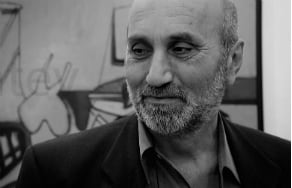
Some types of art came to the conclusion that information likewise can be art.
In the era of information society (in which we live), it is not information but its creation and exchange that is art. And when the process of information production emerges, its producers, authors, and consumers also emerge.
When a consumer makes use of the most common and current information means (for example, social networking sites), he stops becoming ordinary — or everyone becomes ordinary.
This is the time when online you are not only a lover of art, but also an artist; not only a reader, but also a writer. That is to say, the boundaries between the user and the producer disappear. Even those who think they are just a consumer likewise become producers, since in carrying out the act of thinking, they become a participant in the exchange of information society. This process contains the idea of both form and data.
And it doesn’t matter what type of participation it is — interactive or inter-passive. Passing through the information environment, they become a part of it; the environment (including the art environment) is made into an installation within them.
A person who deals in information is himself (consciously or unconsciously) an instrument. The conscious instrument is the provocateur, while an unconscious instrument, simply the transporter of information.
The issue of art is to reveal. Through displaying it, the artist reveals, zooms on the issue, crystallizes and makes it visible. Now if everyone is an artist, it doesn’t mean there aren’t good and bad artists. And under such conditions when everyone is an artist, the good ones are those who see a problem and make it visible.
In a universal vision (when everything is visual), good artists make visible invisible things, which sometimes have nothing to do with the image; for example, they may have to do with movements — political, national, scientific.
That is, magnified is the issue that, say, disturbs the development of society today — in terms of civilization.
And in this environment, the storage, classification, and assessment of information becomes important. And assessment cannot be made at random. It is also a willful act.
Nazareth Karoyan
Art Critic
Director, Institute for Contemporary Art (ICA)
The views expressed in the column are those of the author's and do not necessarily reflect the views of Media.am.

Add new comment
Comments by Media.am readers become public after moderation. We urge our readers not to leave anonymous comments. It’s always nice to know with whom one is speaking.
We do not publish comments that contain profanities, non-normative lexicon, personal attacks or threats. We do not publish comments that spread hate.